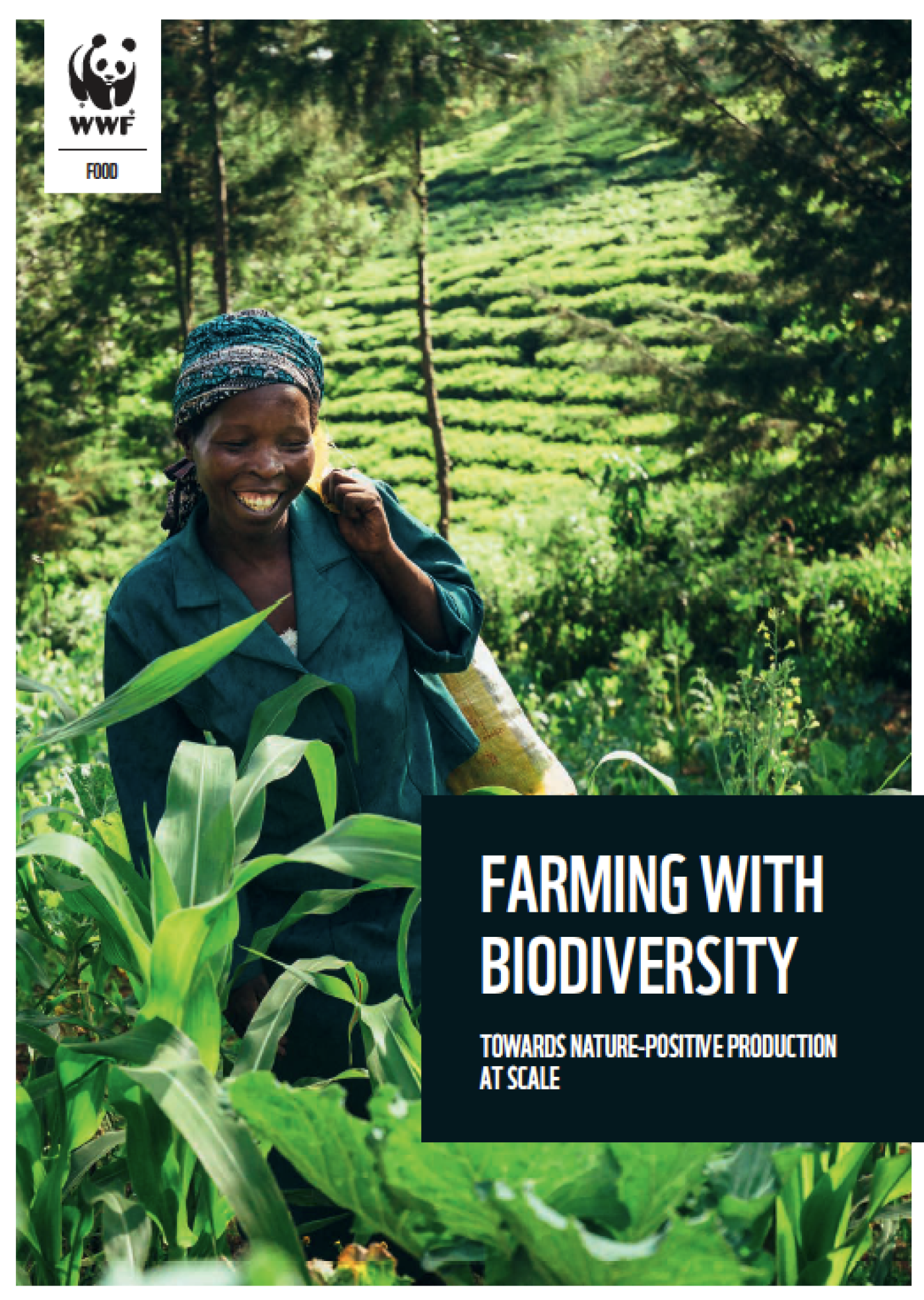FARMING WITH BIODIVERSITY: Towards Nature-Positive Production at scale
Transforming our global food systems is central to meeting the largest challenges faced by humanity, including climate change, biodiversity loss, food insecurity and risks to future pandemics. The current food system is responsible for a third of greenhouse gases, 80% of deforestation, 70% of terrestrial biodiversity loss, and has been linked to a dramatic rise in our exposure to zoonotic diseases, such as Ebola, SARS, and COVID-19.
A healthy future requires us to halt and reverse biodiversity loss and limit climate change while meeting the fundamental human right to healthy and nutritious food for all. It is only possible to achieve this by transforming our food systems and adopting nature-positive production practices at scale and within planetary boundaries. Different solutions will be required in different contexts, but agroecological approaches, that apply ecological and social principles to agricultural production, are a fundamental part of this transformation.
The upcoming UN Food Systems Summit provides a unique opportunity to accelerate the adoption of agroecological approaches and to ensure that its relevant principles can be transferred to all nature-positive production practices. Aligned with outcomes of the conferences of the UN Framework to Combat Climate Change and UN Convention on Biological Diversity, such practices and principles when adopted at scale will bring us closer to achieving the 2030 Sustainability Agenda. Protecting nature and improving livelihoods, agroecological approaches deliver resilience and will advance all Sustainable Development Goals.
WWF is committed to further exploring how agroecological approaches can be implemented at pace and scale. We are delighted to present this paper, outlining the actions that can be taken at different levels and by different actors. We look forward to working in partnership with farming communities, civil society organizations, scientists, as well as public and private sectors to implement agroecological approaches as part of nature-positive food systems, for the benefit of both people and planet.


